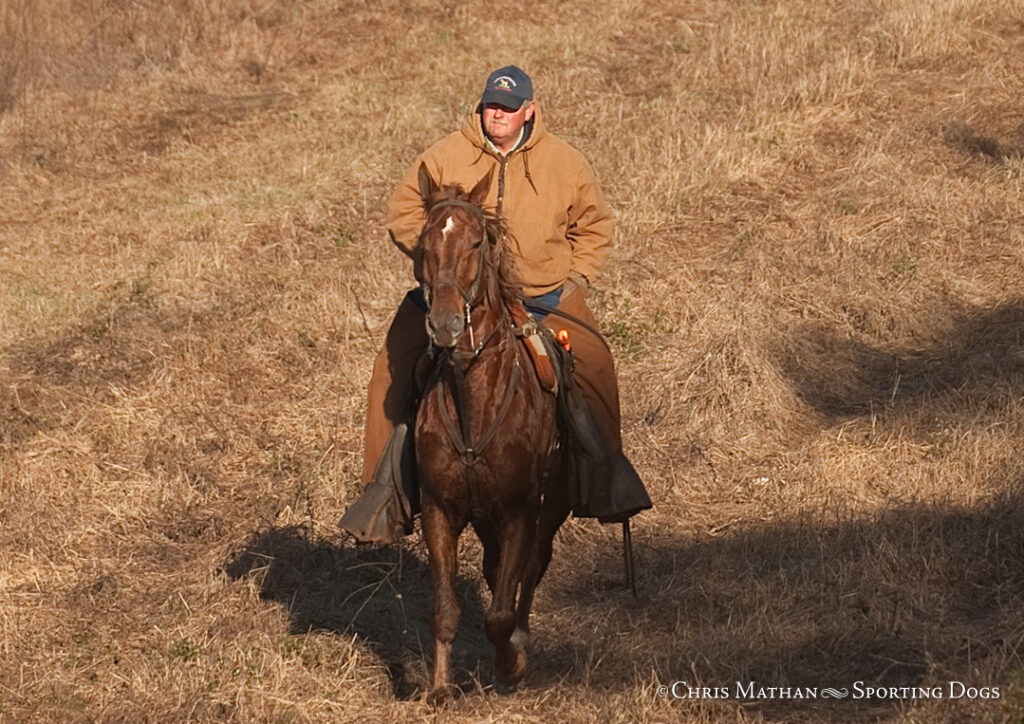The year was 1955. Buck Reed had returned home to South Georgia from the war in Europe ten years before and embarked on his career as an all-age handler of pointing dogs as successor to his father, Sam, who had then retired from the same trade, turning his string over to Buck. Sam sadly died a year later of a heart attack, victim of the near universal curse of his generation, cigarettes.
Buck had miraculously avoided that curse but was now at age 45 suffering lingering wounds, physical and psychological, from his war years, which had included duties as an infantry Sergeant at the Battle of the Bulge, for which he had been awarded a Purple Heart, an honor he kept to himself. Based on his family farm in Lee County, he longed to give up the circuit and work privately for his best field trial customer, Bill Breez, a prosperous road builder who wanted Buck to turn his farm into the hub of a “quail shooting estate.” Buck would lease hunting rights on 4,000 adjoining acres of pine, cotton, corn, and peanut lands and with Buck’s 400 acres Bill would have an ideal place to entertain the real estate development customers from Atlanta who were making him rich.
Buck had two strong dogs in his field trial string, pointer siblings, 5-year-old Leesburg Lill and 4-year-old Leesburg Jake. Lill had won the Continental Open-All Age Championship for him in January and Jake had won the Free-For-All for him in February. Bill Breez owned them both but had promised Buck half their sale proceeds if he followed up on their mutually conceived plan to turn his family farm into the hub of Breeze’s leased quail shooting estate. Breeze would build a lodge on Buck’s farm. They would rename Reed Farm and the rented land Buck-Breeze Plantation.
With their deal sealed with a handshake and the hunting leases secured, Bill had an Atlanta architect design the modest five-bedroom lodge and one of his developer clients build it overlooking a bass fishing lake on Buck’s family farm. Now Buck turned to selling his field trial string.
The best prospect was Buck’s principal competitor, also based in Lee County, Fred Compton. Fred’s best customer was Alvin Collins, who was Bill Breeze’s chief competitor in the road building business. Fred and Alvin had their heart’s set on winning the National Bird Dog Championship and Buck and Bill knew that was the key to selling Lill and Jake at the price they wanted.
Buck went to work on the dog-selling assignment. It took him two weeks to reach agreement on the basic terms. When they were finally agreed, Buck threw out a final condition: if Lill or Jake won the National, an additional $10,000 would be due. At first Alvin Collins said Hell No. But a week later he agreed. Lill and Jake were delivered to Fred Compton’s kennel by Booty Blevins, Buck’s scout, on May 1, 1955. Booty had tears in his eyes.
Buck and Fred had, since Buck returned from the War, trained July through September near Broomhill, Manitoba, their grounds lying five miles apart. A day before Fred was scheduled to leave his camp to attend a trial in North Dakota, he drove to Buck’s camp. (Since Buck was just working his shooting string he would stay at Broomhill through September and half of October).
When Buck saw Fred’s truck approaching, he knew Fred’s purpose in coming. He and Booty had discussed it repeatedly during the last two months and agreed on a response to what they knew Fred would ask. Sure enough, Fred asked that Buck lend him Booty to prepare Lill and Jake for the National and scout them there.
“No, I will not do that. But I have a counter proposal that will be better for you. You bring them to me mid-December and Booty and I will put them on the wagon string at Buck-Breeze Plantation. And Booty will scout them for you at the National. We won’t even charge for training while they are with us in December and January.”
Fred at first refused but returned that evening to say he would agree to Buck’s terms. He and Booty knew a long-distance phone call to Alvin Collins had produced the change of mind.
Lill and Jake did not place during the fall half of the field trial season. On December 15 Booty drove to Fred’s kennel and picked them up to bring to Buck’s. Fred was not there to greet him, but Fred’s scout, Wally Sims, a friend of Booty’s, was. “Them is sure one-man dogs,” Wally said. Booty grinned but said nothing.
Lill and Jake were the favorites of every shooting guest on Buck-Breez Plantation. At January’s end Booty drove them to Fred Compton’s kennel where he would stay with them until after the National (Wally Sims would fulfill Booty’s duties at Buck-Breez Plantation during Booty’s absence.)
Leesburg Jake won the National Championship in February, Fred Compton handling, Booty Blevins scouting. The following year, Leesburg Lill won it for the same team.
Booty decided he liked scouting on the field trial circuit better than managing quail hunting parties so he and Wally traded jobs (Wall had struck up a relationship with a girl who lived on one of the rented-for-hunting farms that made up Buck-Breez Plantation so the trade served another purpose as well).
Author’s Note: This story, pure fiction, is dedicated to Bubba Moreland and in memory of his father, the late Mr. George Moreland, and his friend and field trialing customer, the late Luke Weaver and to the memory of the late Walker Lee Clinton, long time scout for the Morelands. Luke often said, the best thing the Morelands did was put a stale trial dog on the shooting wagon at their Coney Lake Plantation.
